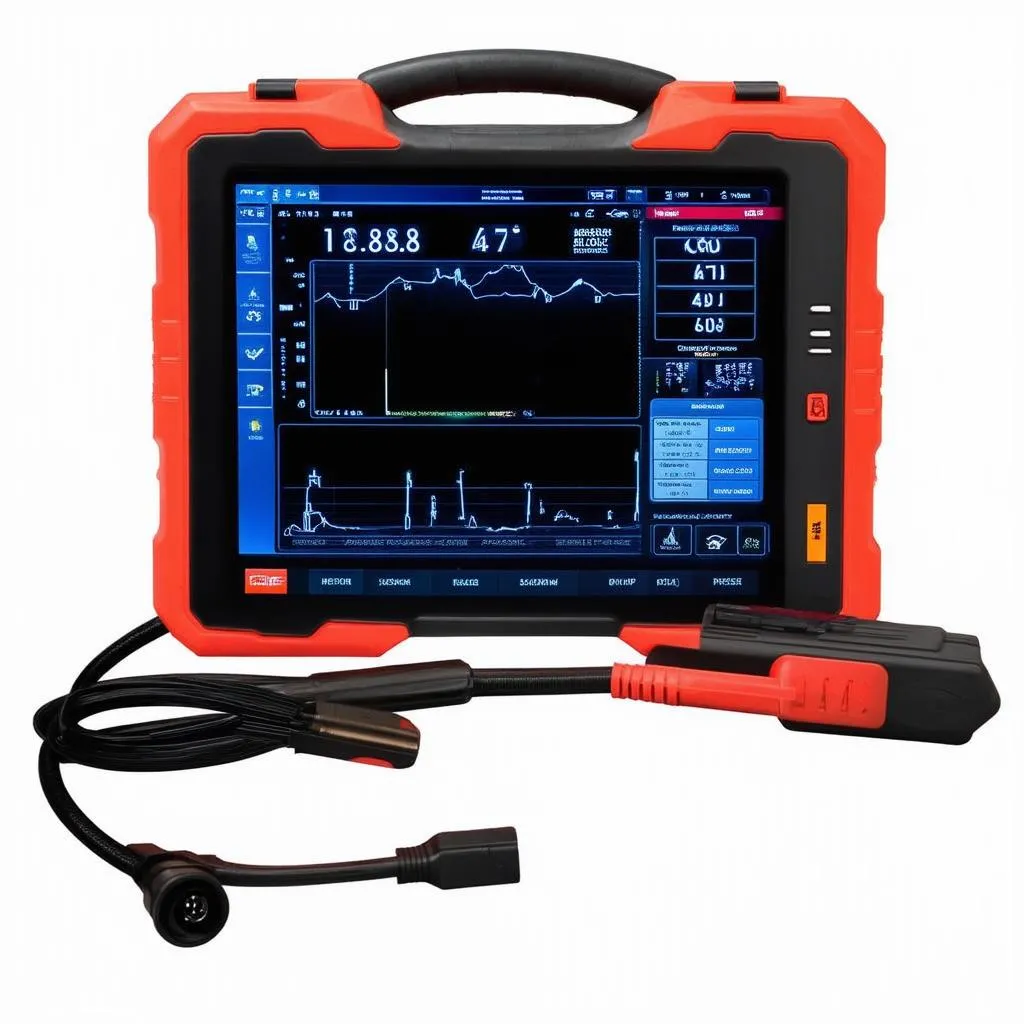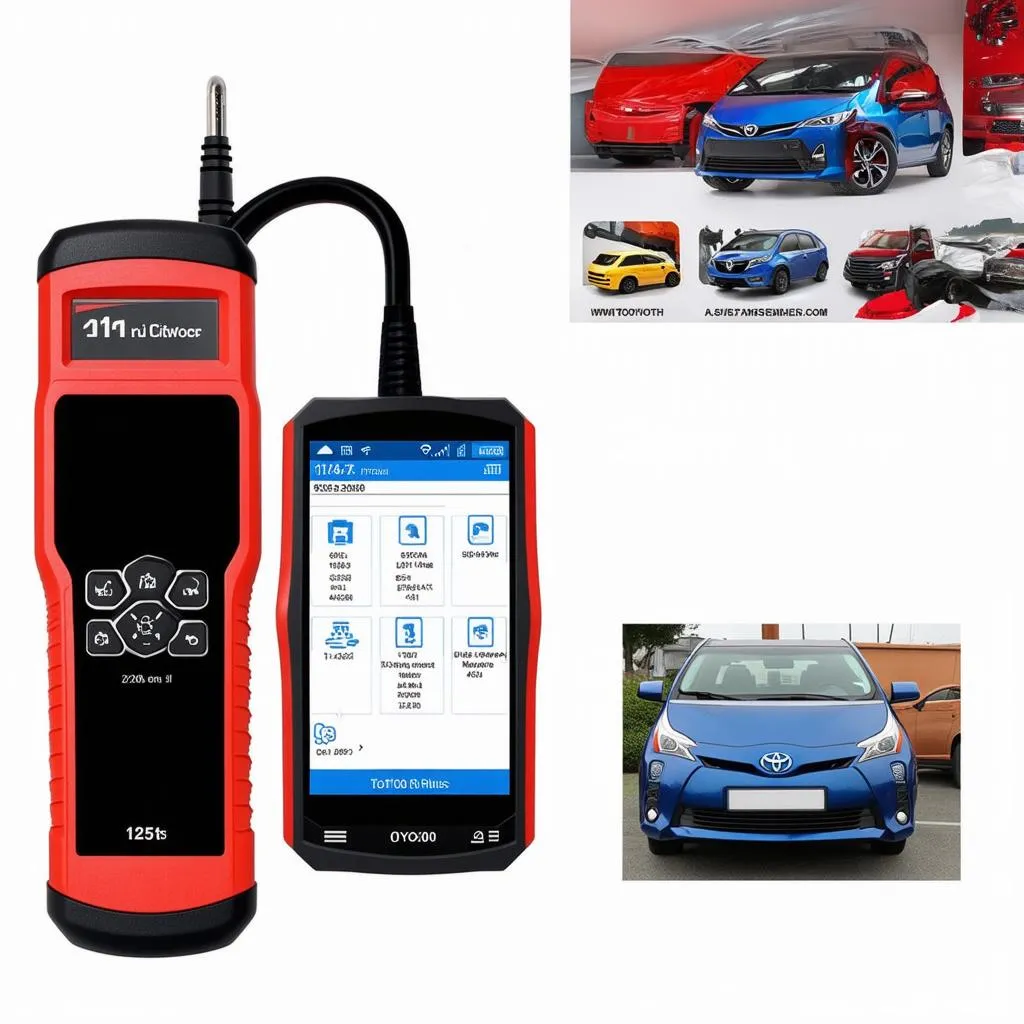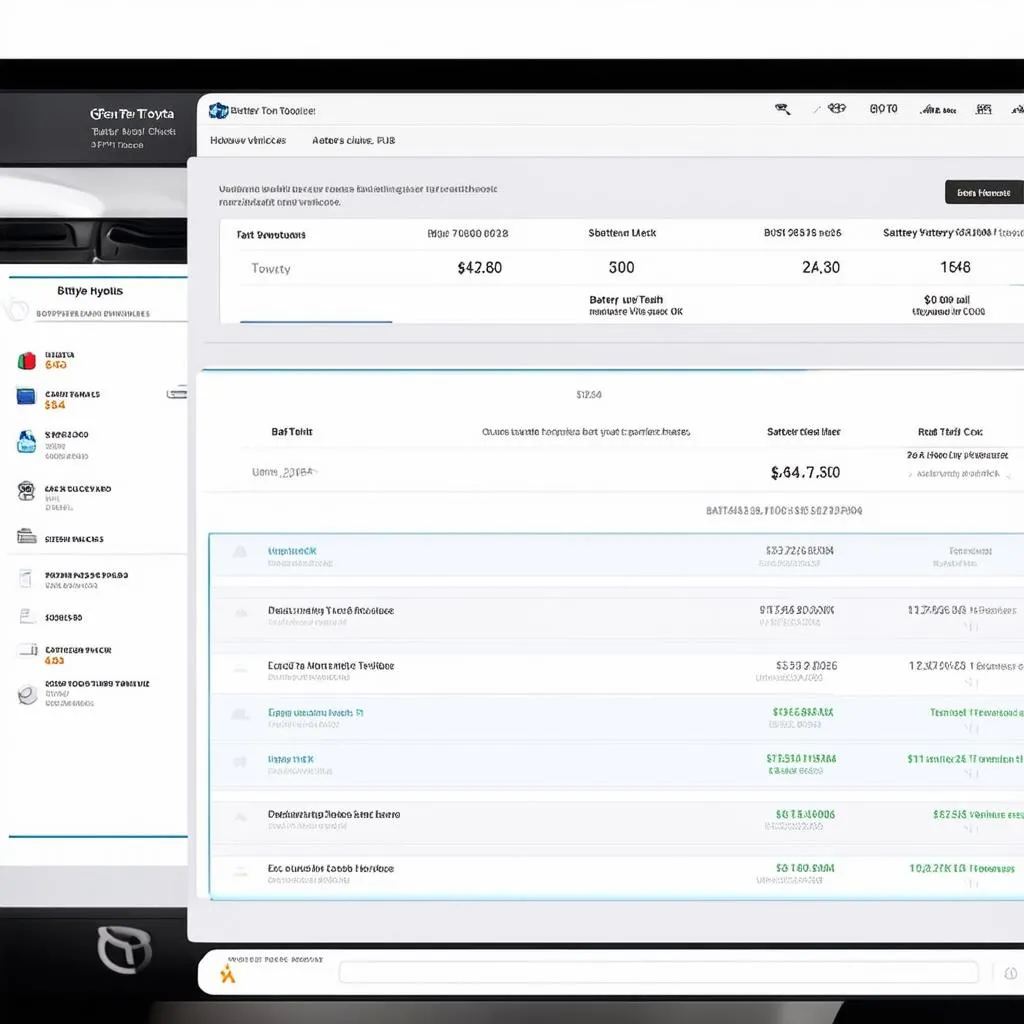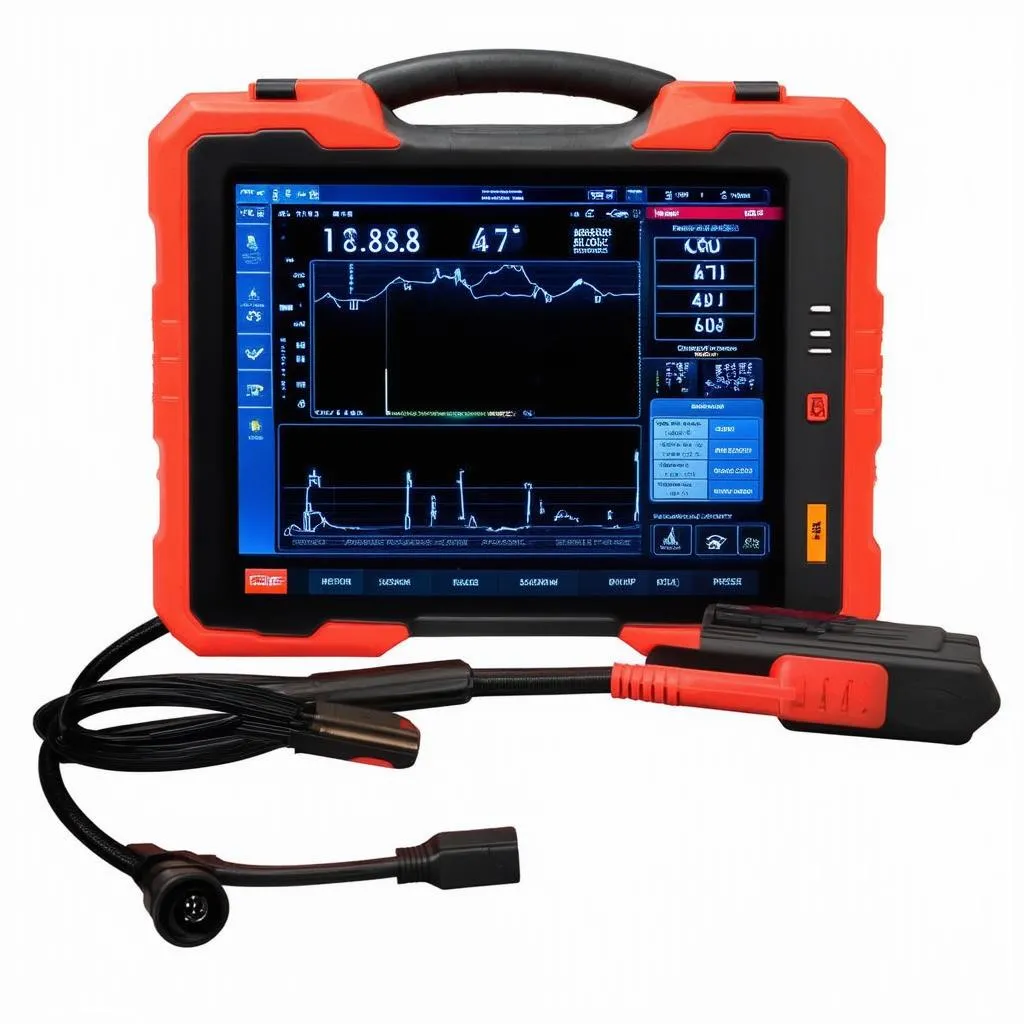Have you ever wondered about the health of your Prius battery? Perhaps you’ve noticed a slight decrease in fuel efficiency or a longer startup time. These could be early signs of a declining battery. Luckily, you don’t need to take your car to a dealership for a costly checkup every time you have concerns. You can get a good indication of your Prius battery’s health using your OBD (On-Board Diagnostics) port and a compatible scanner.
What Does “Determine Battery Health of Prius OBD” Mean?
This question reflects a growing interest in proactive car maintenance and the desire for greater transparency about your vehicle’s performance. Many car owners are becoming more familiar with their OBD ports and the wealth of information they can provide. In the context of a Prius, determining battery health using the OBD port involves using a specialized scanner that can access and interpret specific data related to the hybrid battery pack.
How to Determine Prius Battery Health Using OBD?
1. Understanding the Hybrid System:
The Prius is a hybrid vehicle, meaning it uses a gasoline engine and an electric motor to power the car. The battery is a crucial component of the hybrid system, storing energy captured during braking and providing power to the electric motor.
2. Utilizing a Diagnostic Scanner:
To determine the battery health, you’ll need a diagnostic scanner specifically designed to work with hybrid vehicles. These scanners can access and interpret data related to the hybrid battery pack, including:
- Battery Voltage: This measurement indicates the overall charge level of the battery.
- Cell Voltage: The scanner can measure the voltage of individual battery cells, revealing potential imbalances or inconsistencies.
- Battery Resistance: High resistance indicates a deteriorating battery.
- Battery Capacity: This reading tells you the battery’s ability to store energy, which decreases with age.
3. Analyzing the Data:
Once you have the data from the scanner, you need to interpret it. Here’s what to look for:
- Voltage: Consistent voltage across all cells is a good sign. Significant differences in voltage can indicate a faulty cell.
- Resistance: Low resistance is optimal. Higher resistance indicates a problem with the battery pack’s internal wiring or a deterioration of the battery cells themselves.
- Capacity: A lower capacity than expected may point to a battery aging issue.
4. Seeking Professional Advice:
While the scanner can provide useful information, it’s important to consult with a qualified technician, especially if you suspect a significant problem with your Prius battery. They can further diagnose the battery using advanced equipment and offer tailored solutions.
What are Other Ways to Determine Battery Health of Prius?
While using an OBD scanner is a great starting point, there are other methods you can use to assess your Prius battery’s health:
- Observing Fuel Efficiency: If you notice a significant drop in your fuel economy, it could be an indication of battery issues.
- Checking for Unusual Sounds: A clicking or whining noise coming from the battery area could suggest a problem.
- Monitoring Start-Up Times: If your Prius takes longer than usual to start, the battery might be struggling.
Frequently Asked Questions About Determining Prius Battery Health
Q: What types of OBD scanners work best with a Prius?
A: You’ll need a scanner compatible with Toyota vehicles and capable of accessing hybrid system data. Look for scanners specifically advertised as “hybrid-compatible” or “Toyota-compatible.” Some popular options include:
- Autel MaxiSys Elite:
 Autel MaxiSys Elite Scanner for Toyota Prius
Autel MaxiSys Elite Scanner for Toyota Prius - Launch X431 Pro:
 Launch X431 Pro Scanner
Launch X431 Pro Scanner - Foxwell NT510:
 Foxwell NT510 Scanner
Foxwell NT510 Scanner
Q: Is it safe to use an OBD scanner on a Prius?
A: Using a reputable OBD scanner from a trusted source is generally safe. However, always follow the manufacturer’s instructions and avoid attempting any repairs or adjustments yourself unless you have the necessary expertise.
Q: How often should I check the battery health?
A: It’s a good practice to check your Prius battery health annually or more frequently if you notice any issues like reduced fuel efficiency or prolonged start times.
Where to Get Help?
If you’re experiencing any concerns about your Prius battery, don’t hesitate to contact a qualified mechanic or visit a Toyota dealership. They can provide expert guidance and recommend the appropriate solutions based on your specific situation.
Do you need help installing a diagnostics tool?
We offer 24/7 support to help you get the most out of your diagnostics tools. Contact us via Whatsapp at +84767531508 for personalized assistance and guidance.
Conclusion:
Understanding your Prius battery health is an essential part of responsible car ownership. By utilizing an OBD scanner and following these tips, you can gain valuable insights into your battery’s performance and proactively address any potential issues. Remember, maintaining a healthy battery not only ensures optimal performance but also contributes to a more environmentally friendly driving experience. Let us know your thoughts in the comments section below and share your experiences with Prius battery health! Don’t forget to check out other informative articles on techcarusa.com for a deeper dive into automotive technology and maintenance!

